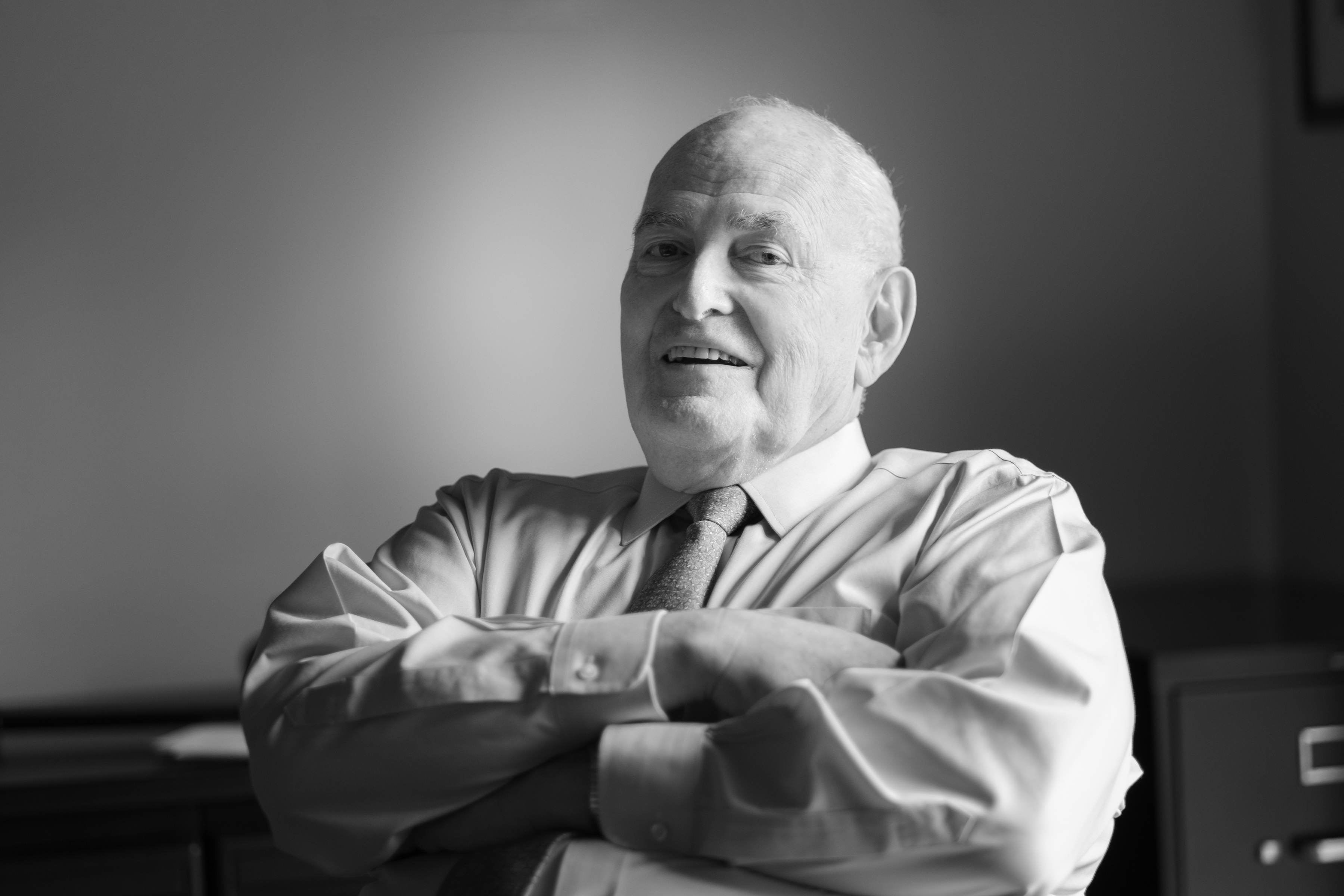
Dear Friends and Colleagues,
It is with sadness that we write to share the news that Guido Goldman, Co-Founding Director alongside Professor Stanley Hoffmann of the Minda de Gunzburg Center for European Studies (CES), died today at the age of 83.
Guido, who had a brilliant mind, a modest manner, and great conviviality, was a visionary academic entrepreneur who left an indelible mark on Harvard and the entire field of European studies. He was the architect of enduring partnerships between Germany and the United States that continue to foster transatlantic interchange and mutual understanding.
Guido was born in Zurich on November 4, 1937, the son of a German mother, Alice Gottschalk, and Nahum Goldmann (1894-1982), a longtime Berlin resident and co-founder of the World Jewish Congress and President of the World Zionist Organization. With his parents and older brother, Guido fled to the United States in 1940. He entered Harvard College and joined Winthrop House, graduating summa cum laude in 1959. He stayed on to earn a doctorate in the Department of Government in 1969 with a prize-winning dissertation on “Heavy Industry and Foreign Policy in the Weimar Republic.”
Guido’s service to Harvard began as a graduate student when he worked with Henry Kissinger to establish the German Research Program, which became the Program on West European Studies in 1969, then the Center for European Studies, and now the Minda de Gunzburg Center for European Studies (CES). In partnership with Stanley Hoffmann, who served as CES Chairman, Guido was Founding Director of the Center from 1969 to 1994, while also teaching as a Senior Lecturer in Government. He later served as the Center’s Director of the Program for the Study of Germany.
Guido made immeasurable contributions to his alma mater. In more than four decades of service to the University, Guido was instrumental in raising more than $75 million for important activities at Harvard, including multiple endowments for European studies. In 1967, Guido played a pivotal role in the establishment of the prestigious John F. Kennedy Memorial Fellowships and served as the program’s first director. In 1974, he secured a major gift from the Krupp Foundation for an endowed professorship in European studies which was the first at Harvard to also incorporate funding for graduate fellowships. In 1986, when Harvard was reconsidering usage of Adolphus Busch Hall, Guido stewarded a generous donation from the de Gunzburg family to renovate the building as the new home for CES and to establish a new endowment for the Center. In 1990, Guido helped to negotiate a historic agreement through which the German government established three Centers of Excellence for German and European Studies at Harvard University, Georgetown University, and University of California, Berkeley. Guido was also instrumental in raising funds for the McCloy Program at Harvard Kennedy School and for the construction of Otto Werner Hall, an addition to the Fogg Museum that housed Harvard’s excellent collection of expressionist art.
Guido’s contributions to public life in the United States, and especially to transatlantic relations, were prodigious. As a young man, he was the primary force behind the establishment of the German Marshall Fund (GMF), an institution dedicated to improving transatlantic understanding. It was Guido’s initiative that led German Chancellor Willy Brandt to announce a major foundational gift to the GMF, as well as a significant endowment for CES, at Harvard’s Commencement on June 5, 1972 to mark the 25th anniversary of the Marshall Plan. Guido then served the GMF for forty years as the founding Chairman of its Board, a period during which he was also an important contributor to German-American relations and a member of the Board of the American Council on Germany, as well as an active member of both the Council on Foreign Relations and the Atlantic Council of the United States. In 1978, he was awarded the Commander’s Cross of the Order of Merit by the Federal Republic of Germany for his “contributions towards fostering German-American relations.”
In May 2018, Harvard awarded Guido the Centennial Medal, the highest honor of the Graduate School of Arts and Sciences for his “lifelong commitment to promoting international peace and prosperity,” and for “decades of impeccable leadership of the Center for European Studies and service” to his alma mater.
Guido was also a major supporter of the arts, serving for many years on the Board, and as Vice-Chair, of the Alvin Ailey American Dance Theatre, a position from which he was instrumental in organizing the Dance2Bfit program to fight obesity in primary schools. As the founder of the American Foundation for Textile Art, he assembled and curated the world’s finest collection of Central Asian Ikat art, work for which he was elected to the Academy of Sciences of Uzbekistan in 1998. After sponsoring many exhibitions of these textiles in twelve American and European museums, in 2005, he donated the bulk of his collection to the Arthur M. Sackler Gallery in Washington D.C. where the Goldman collection has made it one of the world’s foremost centers for the study of Central Asian Ikats. The catalogue of his Ikat collection was given the George Wittenborn Memorial Award in 1997.
A memorial service to celebrate Guido’s life and work will be planned as soon as it is possible to convene in person. For his colleagues and many friends, Guido’s passing is a profound loss. It is thanks to his work that Harvard enjoys its stature as the leading site for European studies in the United States. Guido was tireless in his efforts to permanently embed European studies at Harvard and wise in the counsel he offered for how those studies should be pursued. No one traveled more or worked harder in the service of that cause. His legacy is extraordinary and, through the institutions he built, it will continue to advance knowledge, support transatlantic intellectual exchange, and inspire generations to come.
Sincerely,
Grzegorz Ekiert, Laurence A. Tisch Professor of Government and CES Director, Harvard University
Elaine Papoulias, CES Executive Director, Harvard University